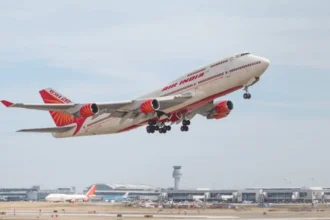Subramanian Iswaran faces multiple charges of accepting lavish gifts during his tenure, shaking Singapore’s clean image.
- Is This a Shock to Singapore's Reputation?
- What Are the Amended Charges and Potential Penalties?
- How Did Formula 1 Lead to a Fall from Grace?
- How Do the Allegations Extend Beyond a Single Figure?
- Has a Storied Career Been Tarnished?
- What Are the Political Fallout and Broader Implications?
- Is This a Costly Scandal in a High-Stakes Arena?
- Is This a Blow to Public Trust?
Is This a Shock to Singapore's Reputation?
Following a guilty plea before a local court, Subramanian Iswaran, former transportation minister for Singapore, has been found guilty of accepting gifts while in office. Initially accused of corruption, 62-year-old Iswaran had charges changed shortly before his trial started. The country, which values its squeaky-clean reputation for ethics in public service, has been enthralled by his case.
What Are the Amended Charges and Potential Penalties?
Compared to the harsh penalty of up to seven years in prison or a $100,000 fine that a corruption conviction would have entailed, Iswaran now faces a fine or up to two years in jail for each count of accepting gifts or gratitude. Being the first political office holder in Singapore to be tried in court in more than fifty years, Iswaran’s trial represents a historic event.
How Did Formula 1 Lead to a Fall from Grace?
Iswaran is mainly recognized for delivering Singapore the elite Formula 1 Grand Prix. The most recent version of the event ended only a few days before his court trial. According to the charge sheets, he bought luxury flights, hotel stays, musical tickets, and Grand Prix permits valued at over S$403,000 (about $311,882 or £234,586).
Declaring, “I will focus on clearing my name,” Iswaran maintained his innocence and quit his government post after receiving these allegations in January. The accusations against him usually center on property mogul Ong Beng Seng, who purportedly gave many items. Ong, who has rights to the Singapore Grand Prix, was detained with Iswaran last year but not formally prosecuted. Initially, he was supposed to be a prosecution witness during Iswaran’s trial.
How Do the Allegations Extend Beyond a Single Figure?
The situation changed when Iswaran was slammed with eight further counts in March. These claims point to his getting bottles of whisky from Lum Kok Seng, a construction firm manager, a Brompton bicycle, and a set of golf equipment. Lum’s business, which has landed many government contracts for Singapore’s infrastructure projects, was given these projects under Iswaran’s direction as Transport Minister. Lum has not been charged with any offense, the same as Ong.
Has a Storied Career Been Tarnished?
Before his latest post as Transport Minister, Iswaran held significant posts in the prime minister’s office, home affairs, and communications. His most famous influence came from his work at the Ministry of Trade and Industry, where he helped shape Singapore’s travel industry in the late 2000s and early 2010s.
When considering his accomplishments, Iswaran was frequently seen as a visionary leader who changed the tourist scene of Singapore by drawing billions of foreign capital to create casinos, opulent hotels, and legendary events such as the Formula 1 Grand Prix. He often graced the platform to present medals to victorious racers among champagne showers.
What Are the Political Fallout and Broader Implications?
Iswaran’s case is only one of numerous recent political scandals that have rocked the People’s Action Party (PAP), which has long supported its zero-tolerance approach to unethical behavior and corruption. Though they were subsequently cleared, another corruption probe involving the homes of two more ministers rocked Singapore’s political scene in 2023. Two MPs quit that same year due to an extramarital affair.
Is This a Costly Scandal in a High-Stakes Arena?
With some ministers making more than S$1 million (approximately $758,000) yearly, Singapore’s government officials are among the best-paid in the world. According to Singaporean officials, the large pay is meant to discourage corruption. In this scenario, though, one wonders if the policy is enough.
Before Iswaran’s case, the last significant corruption inquiry involving a politician occurred in 1986 when National Development Minister Teh Cheang Wan was under close examination for bribery acceptance. Before he could be prosecuted, Teh fatally shot himself. Before it, in 1975, Wee Toon Boon, former Minister of State for Environment, was sentenced to eighteen months in jail for receiving payments worth more than $800,000.
Is This a Blow to Public Trust?
Iswaran’s conviction has damaged public confidence in the governing party and its declared dedication to openness and responsibility. As the matter develops, many people wonder about its effects on Singapore’s political future and its standing as an example of a clean government.








